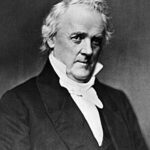President James Buchanan faced the Fort Sumter Crisis during his final months in office. South Carolina had seceded from the Union in December 1860. Federal troops occupied Fort Sumter in Charleston Harbor under Major Robert Anderson. Buchanan refused to reinforce the garrison or order a withdrawal.
The Fort Sumter Crisis Decision
Buchanan believed he lacked constitutional authority to use force against seceding states. He also feared that military action would push border states toward secession. The president chose a middle path that satisfied no one. ⚠️ This indecision left 85 federal soldiers trapped in an increasingly hostile environment.
Political Pressures Mount
Southern Democrats demanded complete federal withdrawal from Charleston Harbor. Northern Republicans called for immediate reinforcement of the garrison. Buchanan’s cabinet remained deeply divided on military strategy. Secretary of War John Floyd resigned over disagreements about Fort Sumter policy.
Strategic Military Consequences
Confederate forces began surrounding Fort Sumter with artillery positions. 📊 Federal supplies dwindled while Confederate strength grew daily. Buchanan’s hesitation allowed South Carolina to prepare for eventual military confrontation. The garrison became more vulnerable with each passing week of presidential inaction.
Impact:
Buchanan’s handling of the Fort Sumter Crisis created devastating long-term consequences for American unity. His military indecision directly contributed to the outbreak of Civil War.
Immediate Military Consequences
🔥 Confederate forces gained crucial time to fortify Charleston Harbor defenses. South Carolina positioned artillery batteries targeting Fort Sumter from multiple angles. Federal troops became increasingly isolated and demoralized during the standoff. Buchanan’s inaction emboldened other Southern states to pursue secession.
Political and Constitutional Impact
The crisis exposed fundamental weaknesses in federal authority during secession attempts. Buchanan’s constitutional interpretation limited executive power in unprecedented ways. His precedent complicated Abraham Lincoln’s initial response to the rebellion. Seven additional states seceded before Lincoln’s inauguration in March 1861.
Long-term Historical Significance
📉 The Fort Sumter Crisis became the catalyst for America’s bloodiest conflict. Lincoln inherited an impossible military situation requiring immediate decision-making. Confederate artillery fired on Fort Sumter on April 12, 1861, beginning four years of war. 🌍 Over 600,000 Americans died in the resulting conflict that could have been prevented through decisive presidential leadership during the critical winter months of 1860-61.
